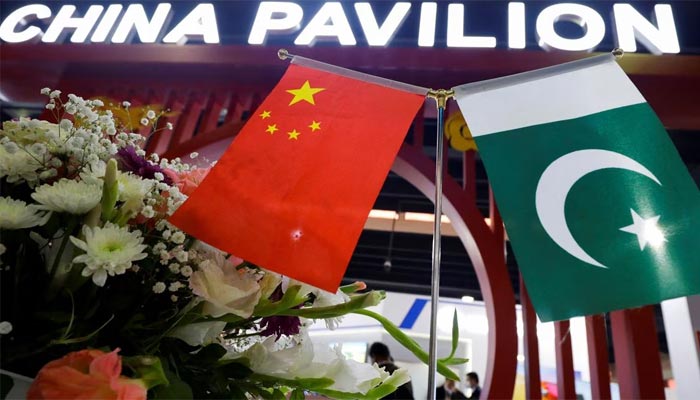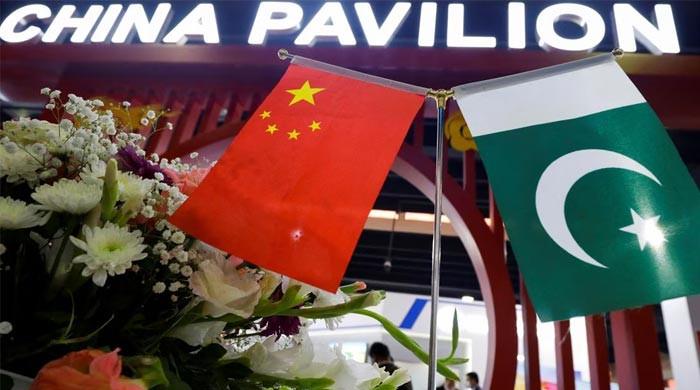FOOLS_NIGHTMARE
ELITE MEMBER

- Joined
- Sep 26, 2018
- Messages
- 18,062
- Reaction score
- 12
- Country
- Location

- Beijing commits to help Pakistan meet two crucial debt repayments.
- "There’s no way China will walk back from Pakistan at this time," analyst says.
- Analysts believe an IMF deal is crucial to restore investor confidence.
While contemplating ways to meet other repayment deadlines as the country has about $3.7 billion in overseas debt due this month and in June against its current foreign exchange reserves of just $4.3 billion, Islamabad — according to Financial Times — is hoping China will rollover more than $2 billion in debt due next month.
Beijing had committed to help the country meet two crucial debt repayments in June worth $2.3 billion by providing fresh funds immediately after Pakistan makes the payments, two senior officials told the UK publication.
The officials said: "The refinancing of the commercial loans worth $1.3 billion and a Chinese government loan of $1 billion would help Pakistan avert immediate default."
It should be noted that China earlier this year already rolled over some loans to Pakistan and Chinese Foreign Minister Qin Gang also reiterated Beijing’s financial support for the country on a visit to Pakistan earlier this month. The Chinese government did not respond to a request for comment on the latest developments.
Warning of a possible risk of default, analysts said that they expected the relief from China — one of Pakistan’s closest allies — to come through.
“There’s no way that the Chinese...will walk back from Pakistan at this time,” said Uzair Younus, director of the Pakistan Initiative at the Atlantic Council, a Washington-based think-tank, referring to the June debt deadlines.
Younus, however, added that a severe shortage of external financing had resulted in “economic shock going through the entire society”.
Pakistan, which has long relied on lenders such as the IMF and China to finance its budget deficits, is trapped in one of the worst economic crises in its history.
Shrinking foreign exchange reserves, which are now only enough to cover about a month of imports, has led to severe import shortage which resultantly pushed the inflation to a record high — the consumer price index hit 36% in April.
The data released by the State Bank of Pakistan (SBP) showed that foreign debt has roughly doubled since 2015 to more than $120 billion.
The increase has been fuelled by rising commodity import bills, borrowing for projects including those that are part of China’s Belt and Road infrastructure initiative, and the fallout of the COVID-19 pandemic.
The officials also informed the publication that they expected to receive up to $400 million from foreign donors following pledges to finance recovery from devastating floods last year.
The cash-strapped nation has been trying to convince the IMF to resume the programme which several analysts term a crucial step in turning the country's economic situation around.
Analysts believe an IMF deal is crucial to restore investor confidence and would help unlock further financing from other international partners, such as Saudi Arabia or the United Arab Emirates.
With officials estimate showing that Pakistan needs to repay about $25 billion in debt in the financial year that starts in July, analysts said the country will probably require further borrowing and potentially a new IMF programme if it is to stave off default.
“The situation is extremely delicate. We are at the worst financial position in our history [in terms] of sustainability of balance of payments,” said former finance minister Hafiz Pasha. “This time we will need an extended arrangement with the IMF for restructuring and reprofiling of our debt.”
Yet Pakistan’s political crisis risks throttling any chance of an economic turnaround. Sharif’s government is locked in a stand-off with former prime minister Imran Khan — who has been demanding snap elections since being removed from power via a no-confidence motion in April last year.
Analysts consider Khan the most popular candidate ahead of national elections due by October. The Pakistan Tehreek-e-Insaf (PTI) chairman is on bail after being arrested this month on what he calls trumped-up corruption charges. Authorities launched a crackdown on Khan’s party after violent protests by his supporters while he was in custody.
Foreign officials have warned the political volatility risks distracting Pakistan from resolving its economic problems. While in Islamabad, China’s Qin called on Pakistani politicians to “uphold stability . . . so that [they] can focus on growing the economy”.
“Political stability is the prerequisite to overall stability. The optimistic scenario is Pakistan getting political stability in the next three months,” said Ali Farid Khwaja, head of Karachi-based brokerage KTrade Securities. “If they cannot deliver on political stability, then a default scenario looks more likely.”
Former finance minister and seasoned industrialist Miftah Ismail emphasised that deep economic reform would also be needed.
“Pakistan’s viability at this point depends on magnanimity of its friends,” he said. “Radical solutions have to be adopted to widen the tax net and reduce expenditure to impress the outside world.”

China to rescue Pakistan as hopes of IMF tranche fade: UK paper
Beijing commits to help Pakistan meet two crucial debt repayments.There’s no way China will walk back from Pakistan at this time, analyst says.Analysts believe an IMF deal is crucial to restore investor confidence.







